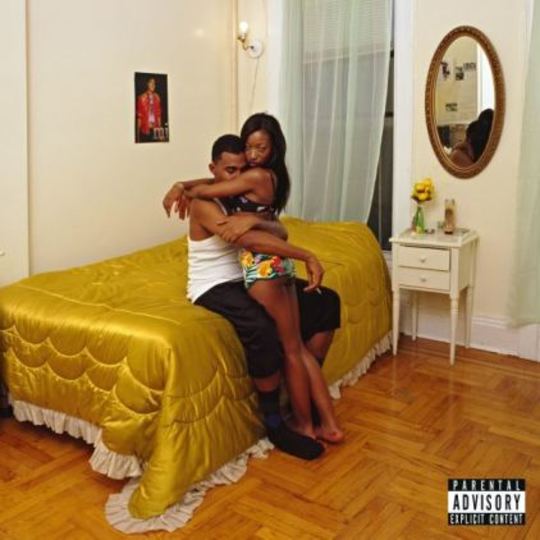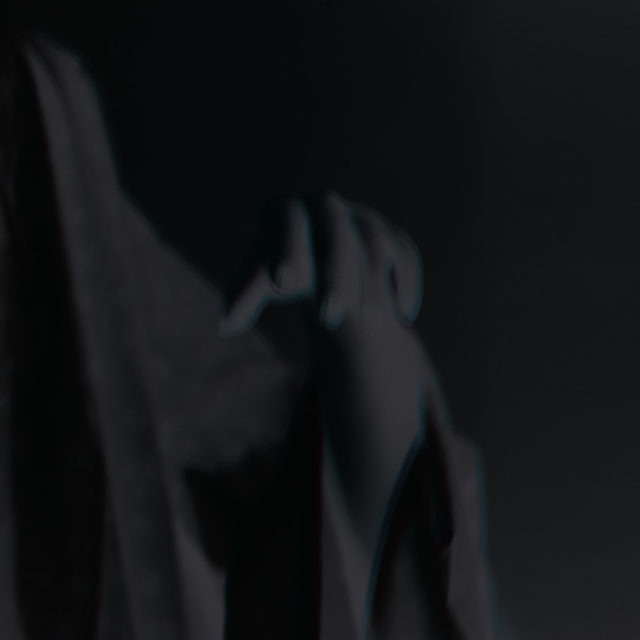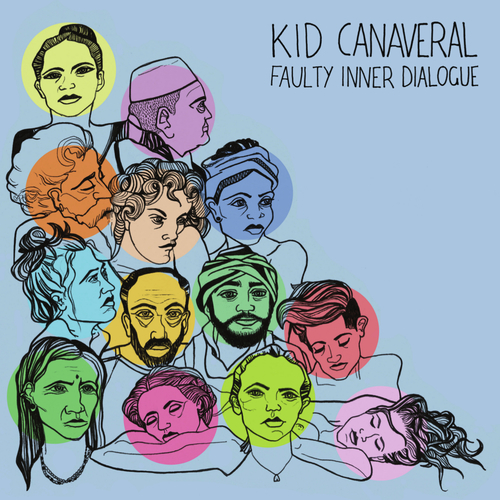When Freetown Sound got its online release a few weeks back, Alton Sterling and Philando Castle were still alive. By the time the CD and vinyl versions hit shelves in August they will have both been dead nearly a month; black men shot by police in a disproportionate show of violence. Like Michael Brown, like Tamir Rice, Trayvon Martin and Eric Garner, like Sandra Bland and Freddie Gray, like Mark Duggan and so many others before them. The Black Lives Matter movement, which had recently faded slightly from the front pages has been reenergised, and the subject of racial identity in America, never far away, is once more leading the news. Suddenly Freetown Sound has stopped being just a Very Good Record, and become a vital one.
There are few careers in modern music more interesting than that of Blood Orange aka Devonté ‘Dev’ Hynes. A black Londoner, born to African and Caribbean parents, now living in New York, he first popped up in art-rock trio Test-Icicles, a project began for a laugh that accidentally became so successful Hynes disbanded it out of sheer embarrassment (“we were never, ever that keen on the music” said Hynes at the time). He went on to release two indie-folk albums under the name Lightspeed Champion, the first of which Falling Off the Lavender Bridge is a bonafide classic, before retiring the name in order to focus on his work as the more electronic, R&B-tinged Blood Orange. Meanwhile he took on co-writing and production for everyone from Diana Vickers (whose albums were proper underrated btw) to reformed Sugababes MutyaKieshaSiobhan. His work with Solange Knowles produced some of the most tantalisingly odd, fiercely brilliant R&B pop of recent years, its knock-on effect on the recent output of Knowles’ sister Beyonce pretty obvious.
Unsurprisingly for a man who has worn so many faces (and that’s not counting his fondness for dressing up like Star Wars characters), Freetown Sound, his third album as Blood Orange, is a record wholly concerned with identity. Describing the music he said, “My album is for everyone told they're not black enough, too black, too queer, not queer the right way, the underappreciated. It's a clap back”. That search for who-you-are is at the core of the album, from Ashlee Haze celebrating the impact of Missy Elliott on young, black women in a piece of fierce, chest-slapping slam poetry on ‘By Ourselves’, to samples taken from Nineties documentaries on drag-culture and race (Paris is Burning and Black Is… Black Ain't respectively). Hynes has created an intertextual, multilayered piece of art that throws its hooks across culture and draws together musical references from Prince and Michael Jackson, to Marvin Gaye and Curtis Mayfield to Warren G, Eddy Grant and the Beastie Boys, alongside literature, films and politics. It’s like one of those posters where thousands of tiny stills from Star Wars are used to make a picture of Yoda. This is very much a portrait of the artists as a young man, painted using his influences on a canvas made from the social backdrop of America in the early twenty-first century.
Hynes doesn’t think of Freetown Sound as a political record, and you can see where he’s coming from, its feel is personal, often inward-looking and sometimes sweet, but events have overtaken him, and since those recent shootings his work has been recontextualised. ‘Hands Up’ already referenced the killing of Trayvon Martin and contained grim warnings about vulnerability (“Keep your hood up when you’re walking… hands up, get out”), but just that simple phrase, 'hands up', takes on new meaning in a week where an unarmed black mental health carer called Charles Kinney was shot by a police officer, while lying on the ground with his hands up. You wonder if even Ta-Nehisi Coates, the activist and academic quoted as ‘Love Ya’ merges into into ‘But You’, could have seen that coming as he talks of the decisions black men take everyday to look less intimidating, less black, for their own protection. Every song here can be unpacked in that much detail. Every song uses samples, references, hooks and voices to encode levels of meaning. This is Shakespeare as pop music, and just as the bard’s work is continually renewed as the world changes, Freetown Sound becomes more interesting, more emotive and more important with each news story.
We can get bogged down in the politics, the cleverness and the detail, there’s an essay to be written on every song here, but that would be doing the record a disservice. Again, like Shakespeare this isn’t art made for academics. Let’s not get lost in the detail of the tree and ignore how beautiful the forest is: Freetown Sound is a fucking great pop record. Hynes, having sculpted the sharp, delicious edges of Sky Ferreira, Solange and the Sugababes is a master at this stuff. ‘EVP’ is a sexalicious post-Prince jam, with its tongue wagging funkily in its cheek, and makes great use of Debbie Harry, who delivers one of those icy, cut glass vocals that made Blondie’s ‘Rapture’ and ‘Sunday Girl’ spellbinding. Its also got a humdinger chorus, spread out over Nile Rodgers- flavoured guitar chops. ‘Thank You’ leans deliciously on Nineties R&B, but gives it a gripping heartbeat and off-kilter jazz licks thrown in with a wobbly De La Soul sample. ‘Hedron Collider’ finds a new subtlety in Nelly Furtado’s voice as it melts over a swooning, sticky ballad. Empress Of collaboration ‘Best To You’ is a percussive banger, and the sweet ‘But You’ and ‘Better Than Me’ dangle in a wonderful parallel universe where Michael Jackson lived and let Dev Hynes produce his next album.
On top of the pop level, on top of the politics, and on top of the personal, Hynes is also unafraid to be deeply weird. Throughout he augments (or maybe sabotages) his loveliest melodies and most chart-friendly, almost Magic FM moments with unsettling strings or horns, he allows the washed-out, shoegazey textures of Crystal Castles or the dream pop of Beach House to creep over songs that could have worked for Taylor Swift. Tracks are delivered in fragments, melodies and lyrics weave in and out of each other, returning and fading away again; ideas die-off before they develop, while others develop so far they bleed into later tracks and change their context. It’s fascinating stuff.
Freetown Sound is a record completely of its time, magpieing for all it’s worth because that’s what postmodern music does, and reflecting a sociological reality that couldn’t be more centred in the present if it was literally using the front cover of today’s Guardian as sleeve art. That said, it’s melodically strong enough, and bursting with so many ideas that it feels incredibly timeless: futuristic and classic all at once. It’s a personal project, but one that will resonate far and wide, and while not everyone can relate to being black, or queer, or living in New York, Hynes’ knack for expressing his insecurity still makes those themes feel universal. And if the blazing importance of the identity politics is still lost on you? Hey, you can still throw this on and fucking dance.
-
9Marc Burrows's Score






















